Is the end of racism possible? The power in agreeing to disagree
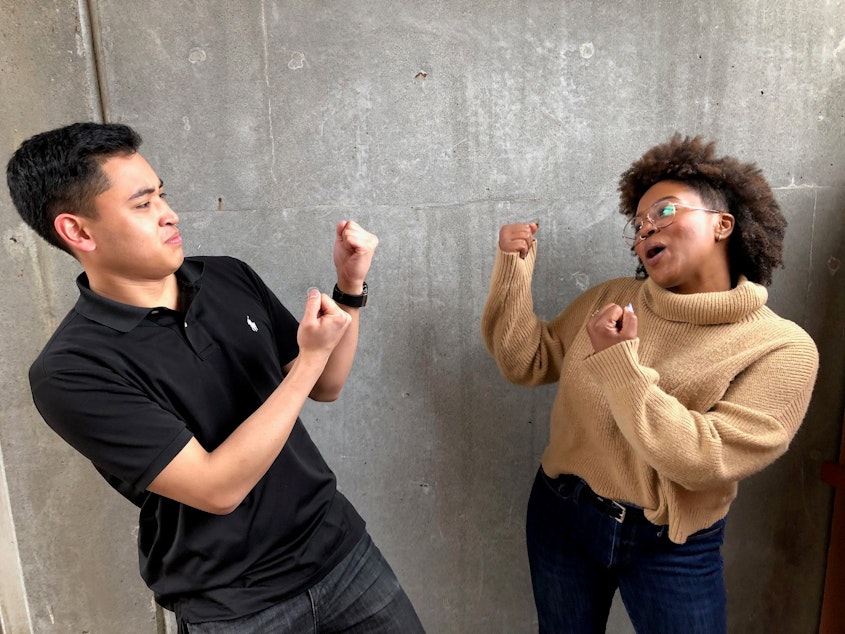
Ishea Brown and Joe Santiago did not get along at KUOW’s Curiosity Club dinner.
Dinner parties can be awkward, even with people you know and like. For KUOW's nerdy supper club, the potential for blunders and nervous shifting in seats is especially high.
At the heart of Curiosity Club is one question: Can great food and compelling storytelling transform a group of strangers into a community?
The catch is that the group of strangers we bring together would not likely find themselves sharing a meal under any other circumstances.
The results of our curious experiment so far have been promising. Surprising overlaps have been discovered. Follow-up brunches have been had. Thoughtful reflections by club members have moved our reporters to think about the stories we share from new perspectives.
However, for Ishea Brown and Joe Santiago, who participated in our Curiosity Club pop-up dinner last February, awkward was just the beginning. Not only did they not hit it off when they were paired for a one-on-one conversation at the dinner, afterwards, Brown published a harsh review of Santiago’s comments.
So what did we do? We brought them back together and recorded their conversation. Where they ended up, surprised us all.
Listen to their conversation here, transcript is below.
Ishea and Joe
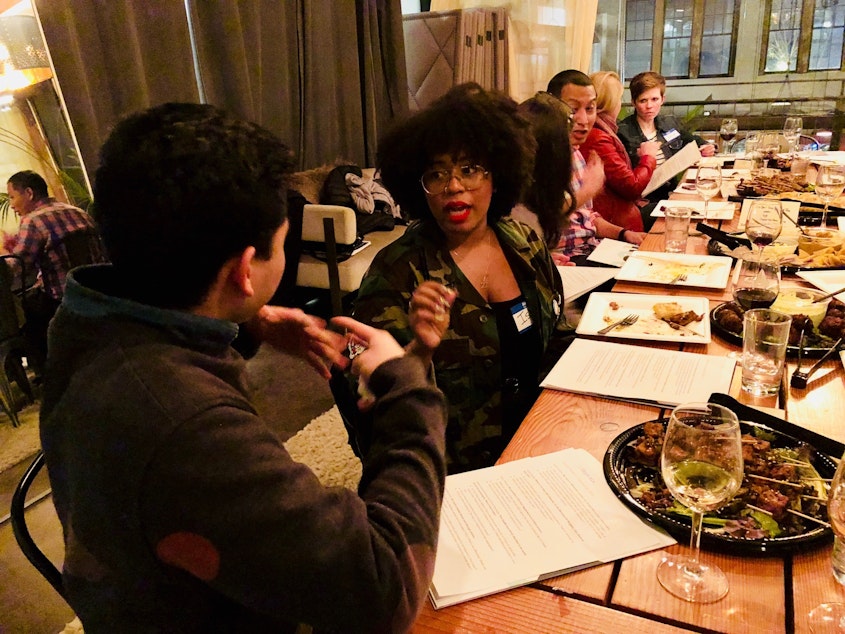
Sponsored
TRANSCRIPT
Producer Kristin Leong: Last year, KUOW launched a new experiment. We called it Curiosity Club. At the heart of the experiment was one question: Can great food and surprising stories transform a group of strangers into a community?
Here’s how the Club works: Ten diverse community members are brought together for a dinner party or series of dinners.
Before each engagement, members are assigned multimedia KUOW stories as “homework.” These stories serve as the fuel for our conversation. I participate as the facilitator and the journalists who reported the stories are included too.
Afterwards, participants reflect on our conversation and try to gauge whether or not we were able to thaw that infamous Seattle Freeze. It’s like a bookless book club. Or a nerdy supper club.
On February 28, 2019 ten Curiosity Club members from very different walks of life were brought together for our first one-off, pop-up dinner at The Cloud Room on Capitol Hill.
Sponsored
Two of the participants, Ishea Brown and Joe Santiago, didn’t exactly hit it off. Risking the possibility of an awkward conversation, we brought them into the studio a few weeks later to talk about it.
Brown: One of the biggest takeaways that I had at the event was a question that you asked, and the way that I remember you asking it was asking the group if we all thought we lived in a post-racial society.
And I remember having this, like, guttural reaction like, one, why is someone even asking this is 2019 in this world where we have this president, and we have all these things happening?
So, I had an emotional reaction to it and I remember kind of turning around and laughing—like, is this being asked seriously or is he being more provocative? And so, how do you remember asking that? [laughter]
Santiago: The way that I remember asking the question was, do you think that we will ever have the capacity to live in a post-racial society?
Sponsored
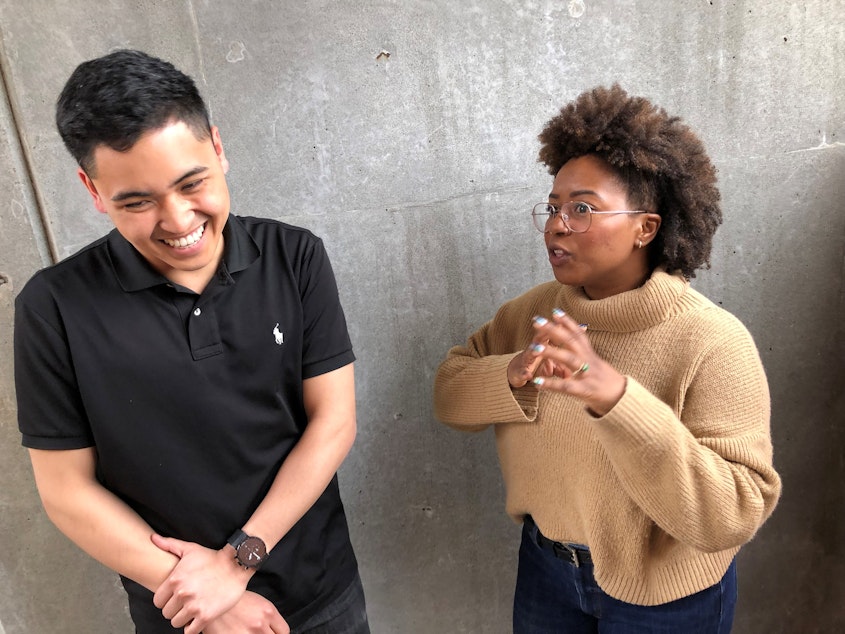
Leong: I was at the dinner. I remember Joe asking the group this question, as Ishea remembered it: Does anybody think we’re living in a post-racial society? As in, presently.
I checked in with my fellow dinner guests and the group was split. Some remembered the question framed as Joe remembers, as a hypothetical wondering about the future, but most recalled it as a question about right now.
Disagreement about the actual question aside, one thing was undeniable: the beat of radio silence that followed its asking.
Brown: I remember thinking, why would anyone ask this question knowing the current climate? It felt like to me, an unproductive question because it’s just like asking if it’s wet outside when it’s raining.
Sponsored
Leong: In her blog post about our dinner, Ishea opens by stating that she was shocked by Joe’s question, not just for the question itself as she remembers it, but because it was a fellow person of color who asked it.
Ishea is African American. She grew up in the suburbs of Chicago where she was the only black girl in her grade until she was in high school. Joe grew up in the suburbs of Seattle. He is a second-generation Filipino American.
Santiago: So I guess, here’s an opportunity for me to ask the question again: Do you think we’ll ever live in a post-racial society?
Brown: I would hope that we do take strides towards living in a society where people can actually show up as their whole authentic selves every day and be accepted and loved regardless of their background, their race, their gender, their class, their education, all of those things.
I would love for those things to happen. Do I think that they will realistically happen in our lifetime? I mean, who even knows.
I come from a family where my mother pricked cotton on a plantation in Mississippi, so my existence is beyond what she may have thought could have happened. And even for my grandparents to see a President Barrack Obama is beyond what they could have dreamed for seeing in their lifetime.
So who’s to say what could happen. I do think that the current society that we live in is not leading us that way. I think it’s leading us a different direction that doesn’t go that route.
What do you believe?
Leong: Joe was nimble at turning the conversation back to Ishea. Asking her about her life, her beliefs, her experience of our Curiosity Club dinner.
And although he never explicitly argued for a “post-racial” society, Joe did continue to return to the idea that if there were no races, there would be no racism.
Ishea pushed back and in response, Joe finally opened up.
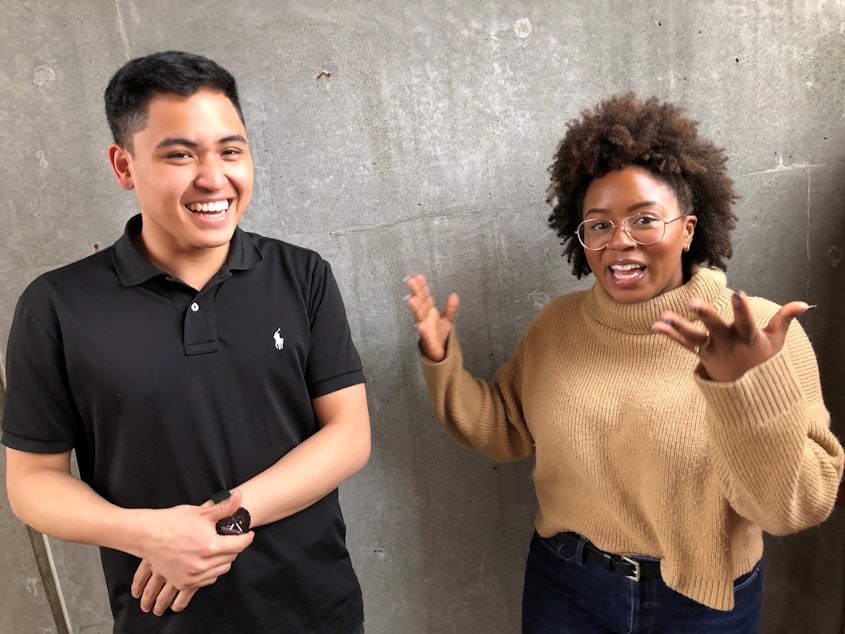
Brown: I think the idea of having to give up your culture or even someone thinking that they would need to rid themselves of things that are so beautiful for something else—it’s crazy to me and I think it also puts the responsibility of eradicating racism on people who are not in charge of racism.
Santiago: It’s interesting that you bring up the idea of giving up your culture. I think that yeah, you’re totally right.
As a person of color racism is a huge thing that you deal with. I mean I’m always looking at like, oh wow it seems like the white people have it going on, right?
I wish I was that guy. You know, I wish I was normal.
Brown: I don’t think that’s how you should—
Santiago: I’m not saying I chose that for myself. That’s just how I processed it growing up.
Because again, I’m coming from the West Coast. It’s given that racism is a bad thing, that there is no place for it.
And yet at the same time you’re confronted with all the messaging and the media that tell you, no, white is the right way to go. White is the thing you should be striving for. These are the people they’re putting in front of you to idolize and worship.
Even as a child, those were the forces that were sort of working on me, to sort of fit in with the white crowd, right? The white people had all the stuff, they had the houses, they had the cars, they seemed to know what’s going on, they seemed to navigate the different systems.
Leong: In addition to the outside messaging that Joe was absorbing about whiteness being not just ideal, but normal, Joe also grew up with similar messages at home.
Joe: My mother in particular I remember her telling us things about how my grandmother would act.
She would say, no, don’t eat with your hands, just because your grandma eats with her hands doesn’t mean that you should. That’s really, kind of gross.
Same thing about speaking other languages. That’s something that started with my grandparents. They came over speaking Tagalog. And when they got to America they realized, hey, teaching our kids that might make them seem like a lower class than somebody who was only speaking English.
Brown: So, was there a lot of pressure to assimilate?
Santiago: Yeah,and so I think that becoming more aware of just that basic family history has sort of helped me understand why I feel the way I do about certain things.
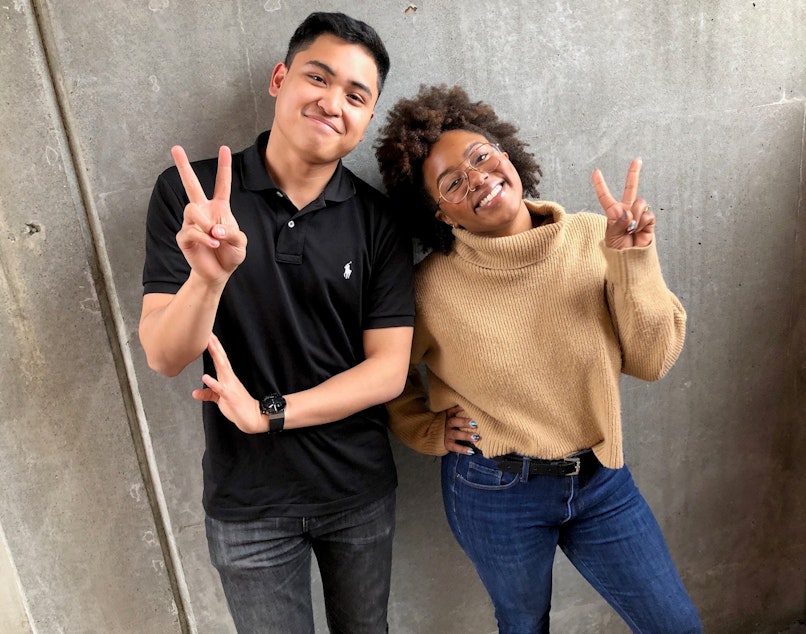
Leong: Here’s the thing about Curiosity Club: the hope at the core of the experiment is community, not alignment.
Joe and Ishea never came to an agreement about what question Joe originally asked, or whether or not it’s possible or even a good thing to imagine a future where race in America is irrelevant.
But they did keep talking. Even as we ran out of time and unplugged the mics. And as they posed for a photo before they left, they were laughing and pretend boxing, before finally flashing two big peace signs to the camera.
Since this conversation, Ishea and Joe have continued to stay in touch.
Santiago: Ishea, now that you’ve been a part of Curiosity Club and write for KUOW and we’ve been able to have our follow up, would you continue to be a part of this conversation, would you continue to be part of Curiosity Club?
Brown: Yeah, I definitely would. And it makes me want to reach out to other people in the club and have more one on one time cause for me that’s really the more enriching experience — the follow up to everything.
Santiago: I agree.
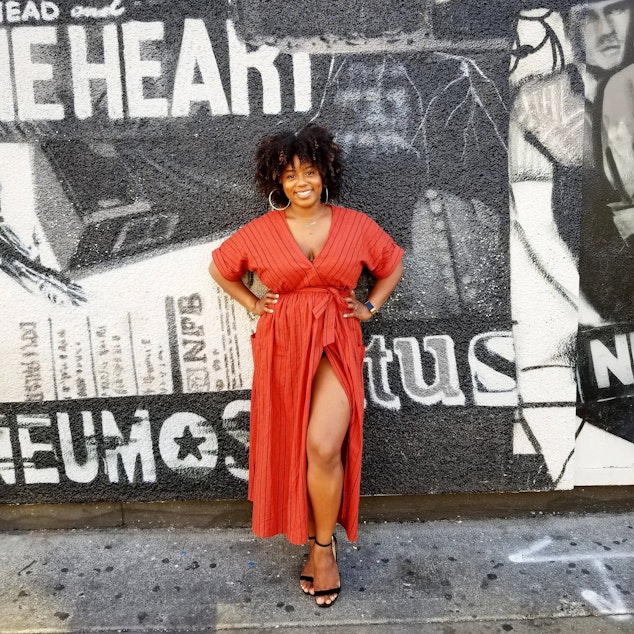
Ishea Brown is a Seattle-based blogger and digital media producer. She is the host of Revive or Archive, the first web series from Allrecipes.com. You can find her on social media @sixtwentyseven.
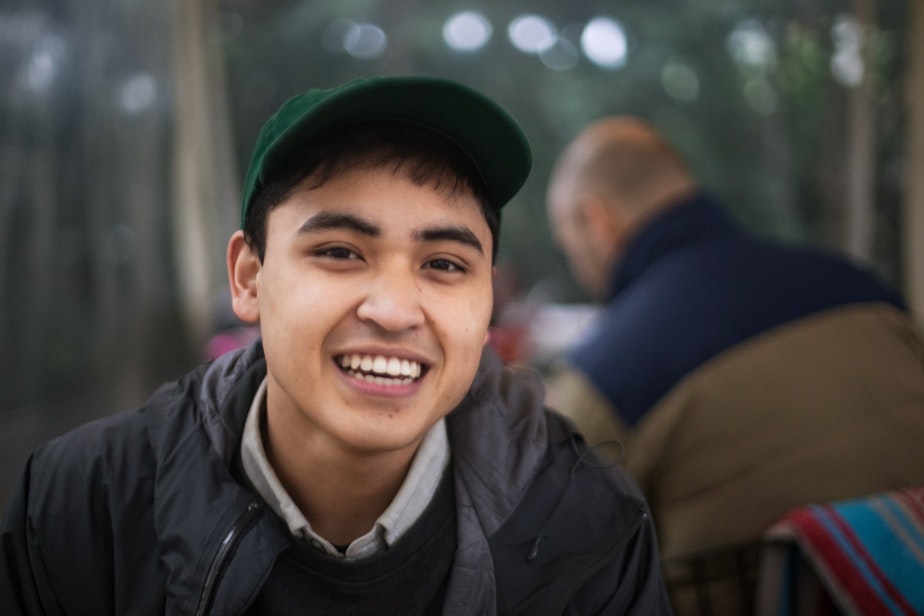
Joe Santiago is a second-generation Filipino-American working in marketing. He received his degree from the University of Washington's School of Art in 2015 and has worked in various creative roles around Seattle ever since. You can find him on Instagram @_joesantiago.
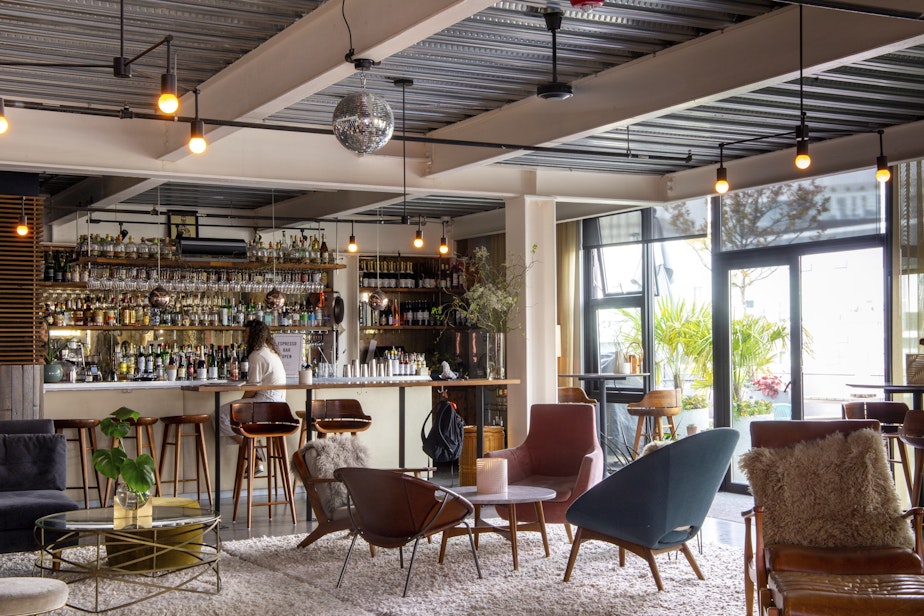
Thank you to The Cloud Room, our KUOW Curiosity Club partner. The Cloud Room is a stylish co-working community and bar in Seattle's Capitol Hill neighborhood that’s enriched by the people who occupy it.
The music featured in this audio story was Scary Island by Verified Picasso.


